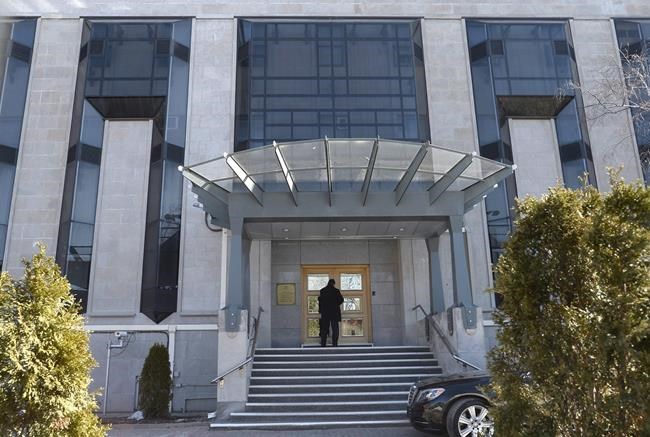OTTAWA — Federal officials are blocking a pro-democracy activist from Canadian citizenship because a Russian court convicted her for blog posts criticizing the Russian army and opposing Moscow's invasion of Ukraine.
Maria Kartasheva said she fears being deported to a Russian prison after Immigration, Refugees and Citizenship Canada pulled her out her citizenship ceremony last June and told her it needs to determine if the Russian charges are also a crime in Canada.
"There are a lot of people in Russia who oppose this war, and most of them are scared to speak up because of situations like mine," Kartasheva said in an interview Friday.
She left Russia in 2019 because of rising authoritarianism, and is now a tech worker in Ottawa who co-founded a grassroots activist group for democracy in Russia.
As first reported by CBC News, Kartasheva, 30, learned via her family that in late 2022 that she was charged by Russian authorities with a wartime offence of disseminating "deliberately false information" about Russia forces.
The charges related to two blog posts she wrote in March 2022 while living in Canadain which she expressed horror at Russian troops killing Ukrainians in the town of Bucha. The UN human-rights office said that attack included "unlawful killings, including summary executions, of at least 50 civilians."
Kartasheva notified Immigration, Refugees and Citizenship Canada about the charges, and the department's records show she uploaded translated Russian court documents last May. Days later the department gave her an invitation to her citizenship ceremony, which was to be virtual.
On June 7, 2023, she logged into the ceremony alongside her husband. In the pre-interview that takes place before someone is allowed into the ceremony room, they were asked if anyone had been criminally charged, as part of a list of standard questions.
When she explained what had happened, an official would not let her proceed with the ceremony.
"I felt kind of heartbroken. But I was trying to also stay positive, because it was my husband's ceremony still, and so I didn't want to ruin the day for him," she said.
Kartasheva was arrested in absentia by a judge sanctioned by Canada, and then convicted and sentenced to eight years in jail by a Moscow court that is also under Canadian sanctions.
Last month, the department sent her a letter, saying that her conviction in Russia aligns with a Criminal Code offence in Canada relating to false information.
"That was pretty scary, because that's when I realized that there is actually a risk that I might get deported — that I might actually end up in a Russian jail," Kartashevasaid. "People who end up there for political reasons often don't survive it."
Kartasheva has submitted an explanation in her case and is awaiting a response. She is asking them to reconsider their decision to block her from citizenship.
Immigration Minister Marc Miller's office would not say whether he plans to intervene.
"We wouldn't have comment on specific cases as matters of privacy," a spokeswoman said in an email.
The department says it follows procedural fairness and will consider any information Kartasheva provides, while insisting it had carefully reviewed her case.
"Following standard procedures, foreign charges or convictions are carefully examined to determine whether the offence committed would have been an indictable offence under Canadian federal law," wrote spokeswoman Isabelle Dubois.
Conservative immigration critic Tom Kmiec was outraged by the department's "stupid behaviour," which he plans to raise with Miller.
"There is no law in Canada that says you cannot criticize our military, can't criticize politicians, can't criticize our government — that's part of living in a democracy," he said.
Miller said Kartasheva "stuck her neck out" as a Russian who is critical of her government, and noted she had told Ottawa about her charges.
"It's like the worst combination of a Kafkaesque situation you can find yourself in, where you did the right thing and you self-disclose, you're completely transparent with your government — and then they punish you for it."
Russian human-rights group OVD-Info says more than 19,000 people have been detained at antiwar protests, resulting in more than 850 criminal cases. Many face multiple years in jail for referring to Russia's invasion as a war.
Kartasheva said that's why she uses her freedom in Canada to speak up online. Now she worries Canada will move to deport her to Russia, on the basis of having a criminal conviction abroad.
"It is very scary, to realize that I might end up in jail on political charges."
This report by The Canadian Press was first published Jan. 5, 2024.
Dylan Robertson, The Canadian Press




